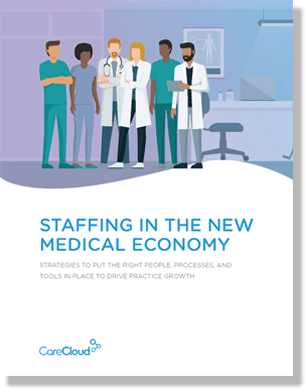Jeopardy is a very human game, riddled with nuances, puns, and humor. There is also certain confidence built into the game – a player does not answer a question unless there is a sense of certainty.
With Watson, IBM built a supercomputer that both answered jeopardy questions confidently and beat human champions at their own game.
Similarly, a doctor shouldn’t be answering a patient’s questions without the same sense of confidence. It’s appropriate, then, that Watson’s first serious real-world application lies in the health care field.
What Can Watson Do For Your Practice?
Managing diseases is a complex task. Diagnoses are often very particular to the individual, and one-size-fits-all verdicts are an injustice to patients suffering from chronic conditions. Don’t forget – diagnostic error is the number one cause of malpractice lawsuits against healthcare providers.
Studies of autopsies suggest doctors misdiagnose fatal illnesses close to 20% of the time. However, many of these medical errors are simply delayed diagnoses, because the information a physician needs is not always readily available.
Imagine Watson as a sort of physician assistant that can scan, analyze and answer questions regarding 200 million pages of data in less than three seconds. After examining a patient, you can ask Watson a series of questions, and it will almost instantly double-check your facts and consider different treatment options.
From a computer science perspective, patients are akin to computable conditionals. They’re complex and each carry a different set of variables. Watson is perfect for handling questions about complex diseases and conditions.
In other words, Watson can help you customize treatment and provide increasingly individualized attention for your patients.
How Watson Is Already Being Used
It’s humanly impossible for unassisted physicians to ever practice at the highest level because the amount of medical information available is simply too much to manage. Clearly, natural language processing is a key element in the future of healthcare technology.
Watson can deconstruct natural language questions and create multiple hypotheses. And naturally, physicians can’t rely on tools like Google to answer all their questions.
A classic example of why not? Google ‘paris hilton’ and the search engine won’t know whether you’re searing a Hilton location in Paris or simply want to catch up on gossip about the infamous socialite.
Accordingly, a few key healthcare players have caught Watson fever. Health insurer WellPoint was among the first to work with IBM to create Watson-based commercial products for physicians.
Under the September 2011 agreement between the two entities, WellPoint will use Watson to simplify communication between healthcare providers and patients and make it easier for benefits administrators to act as middlemen.
Nuance has also jumped on the Watson bandwagon. The voice recognition giant has teamed up with IBM to mix its speech recognition and clinical language processing software with the latter’s Deep Question Answering, machine learning, and natural language processing.
As a result of these alliances, IBM announced the formation of a Watson Healthcare Advisory board last week, which includes medical leaders with expertise in a number of medical fields, biomedical informatics, and healthcare IT.
The board will discuss topics such as medical industry trends, clinical imperatives, privacy concerns, clinical workflow improvements, and patient and clinician expectations around Watson technology.
It’s clear that Watson has a number of practical applications at your practice. Whether your practice will end up with IBM’s precocious brainchild or a competitor’s natural language processing technology is a question for the future.
Nevertheless, all present trends indicate natural language processing will become the norm in hospitals and medical practices across the country in the very near future, so it’s important your practice is updated on how it will benefit from the technology today.
How do you think your practice will benefit from a supercomputer physician assistant? Do you think Watson can perform administrative tasks for your practice as well?



